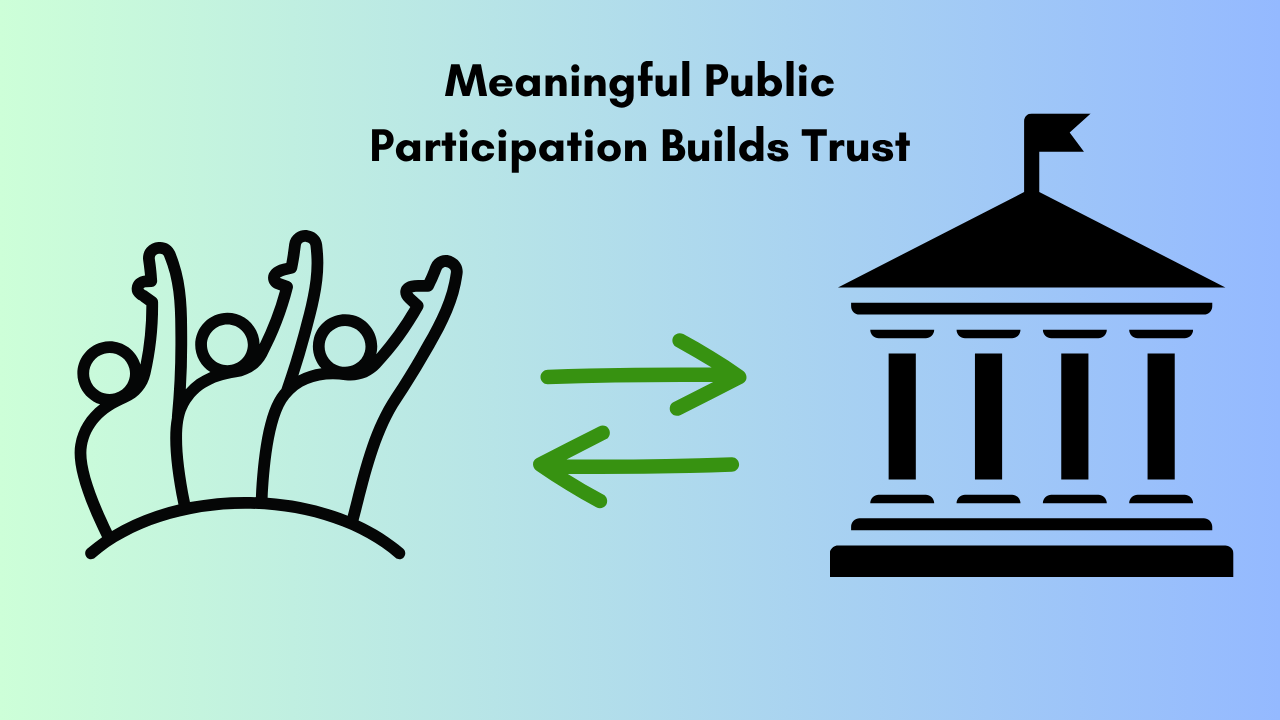Home » Media Centre » Blogs » Rebuilding Public Trust in Kenya through Meaningful Participation

“When the people are not part of the decisions that affect their lives, democracy is only skin deep.”
Across the world, there is a trust crisis in public affairs. Back home, nothing demonstrates this better than the events that surrounded the Finance Bill 2024 - a wave of public protest that continued to evolve since. Young people, mobilizing both online and offline, took to the streets initially to address economic frustration, but the movement quickly shifted to express deeper political disillusionment- conveying a simple message “You do not listen to us.”
These protests have been and continue being a cry for public trust, and at their core lies a failure to make public participation and citizen engagement meaningful. Although public participation is enshrined in Article 10 of the Constitution as a national value and principle of governance, it has too often been reduced to a tick-the-box exercise, making it performative and ineffective. Yet, if we are serious about rebuilding political trust, then we must go back to the roots of people-centered governance, governance rooted in ubuntu. The idea that I am because we are. That dignity, justice, and power must be shared. Reclaiming public participation as a right, a tool for justice, and a vehicle for shared power is not just good governance, it is necessary.
Public participation, in its true sense, is not just about inviting citizens to submit views that are never read or acted upon. It's about deliberative democracy, a system where citizens are consulted with a true intention that they eventually influence decisions. Too often in Kenya, participation has meant rushed public forums held in inaccessible venues, on inconvenient days of the week. The forums often have minimal notice, lack translated materials, and hardly any meaningful feedback mechanisms. Decisions get made but rarely reflect what citizens say. That not only erodes trust, but it undermines legitimacy.
Kenya’s legal and policy framework reflects this ongoing gap. Since the 2010 Constitution was promulgated, there have been at least six iterations of a Public Participation legislative framework introduced in Parliament, each one trying to define standards for engagement. None have passed. Most recently, the Office of the Attorney General developed a draft Public Participation Bill to set clear thresholds at both national and county levels. It’s a welcome step, but only if it’s backed by political goodwill, real accountability, and a genuine respect for citizen agency.
Trust grows when citizens believe their voice matters, not just during elections, but in their day-to-day lives. The promise of public participation is that we govern with the people, not for them.
We’ve seen what’s possible elsewhere. In Ireland, for example, they conduct Citizens’ Assemblies, an approach that places everyday people at the centre of major national decisions. These assemblies bring together 99 randomly selected citizens from across the country who are diverse in age, gender, geography, and background. They meet over several weekends to deliberate on complex issues such as climate change and gender equality. Participants are given access to experts, balanced information, and time to listen, reflect, and debate. Their recommendations carry real political weight and have informed policy and constitutional changes.
Now imagine if Kenya adopted even a fraction of that approach.
What if the young people protesting in the streets today were invited to co-create the future they’re fighting for? What if duty-bearers listened and then acted? What if public participation wasn’t just about showing up to a forum but about shaping laws, policies, and priorities together?
And we must not forget that public participation goes hand-in-hand with accountability. For trust to be rebuilt, accountability must be seen, and the rule of law must be upheld across the board. Public officials must not only listen but also act and be held to account when they don’t. More importantly, when the latter happens citizens should not be subjected to intimidation and gagging tactics and attempts by the very people they have delegated their leadership to.
We are living through a defining moment in Kenya’s democratic journey. The last few weeks and year have exposed a public whose trust in governance is fractured but still resilient. Young people, civil society, faith leaders, and everyday Kenyans are ready to engage. Only if the system truly listens.
We can’t afford to waste this moment.
Rebuilding political trust begins by treating public participation as a moral and democratic obligation. If we’re serious about restoring trust, then we must first rebuild the relationship between the people and power. Because at the end of the day, trust isn’t built through press conferences or public notices, it’s built when people feel seen, heard, and part of the solution. As Wangari Maathai reminds us: “We have to keep at it until it becomes rooted.”
Categories: citizen engagement public participation public trust
You must login to comment
There are no comments.